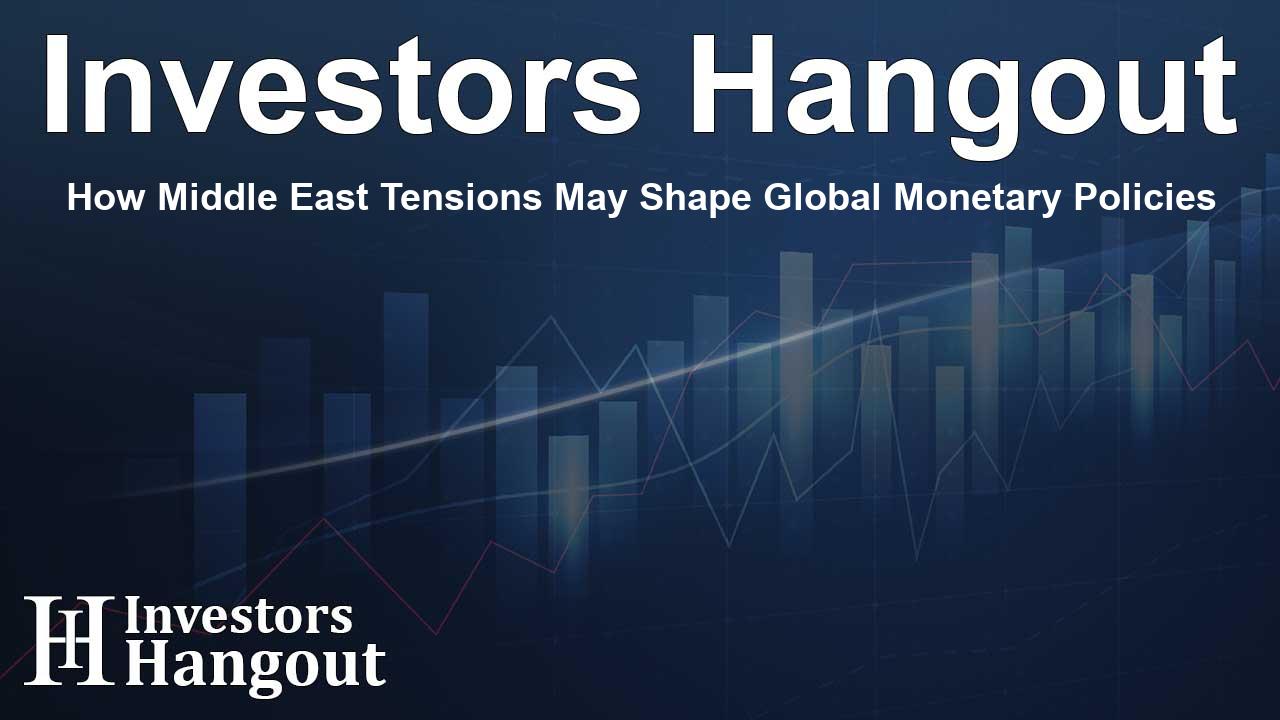How Middle East Tensions May Shape Global Monetary Policies

Understanding the Current Middle East Conflict and Its Economic Impact
Recently, the situation in the Middle East has intensified, creating ripple effects that could influence the global economy. As tensions escalate, policymakers worldwide are analyzing the situation carefully, as they balance between mitigating inflation and ensuring economic stability.
The Recent Developments in the Region
Israel's ongoing conflict with Hamas has reached a critical point, drawing international attention. After a series of intensive airstrikes, Israel escalated military operations by deploying troops into southern Lebanon, raising concerns about the broader implications of this escalation.
Immediate Effects on Financial Markets
So far, the immediate impacts of these developments have primarily been felt in regional financial markets. Investors are increasingly turning to safe-haven assets, with the U.S. dollar experiencing noticeable strength. It reached about three-week peaks, as many lean towards stability in uncertain times.
Oil Price Fluctuations and Market Reactions
In line with these concerns, oil prices have seen a significant uptick of around 2%. Investors are worried that a larger conflict could threaten oil flow from the region, particularly if Israeli actions provoke Iranian reprisals. While these tensions have caused a temporary spike, analysts believe that a substantial increase affecting consumers at the fuel pump may not materialize due to the United States' substantial crude oil inventories and OPEC's ability to adjust production levels effectively.
Central Banks and Their Strategies Moving Forward
Economic policymakers are faced with a complex dilemma. Central banks, such as the Bank of England, reiterate their commitment to focus on long-term trends rather than reactive measures to unforeseen geopolitical events. Nevertheless, they acknowledge the need to remain vigilant to the evolving circumstances.
Central Bank Responses to Inflation Pressures
The Bank of England's Governor has indicated that they could pursue aggressive interest rate cuts should inflation continue on a downward trend. This approach suggests that, at least for the moment, the conflict in the Middle East is not perceived as an immediate threat to their efforts in managing inflation. Similarly, officials from Sweden’s Riksbank conveyed that the current situation hasn’t necessitated any drastic changes to their economic forecasts.
The IMF's Cautionary Outlook
The International Monetary Fund (IMF) has also weighed in, stating that while the situation may have significant economic ramifications, the reality is that commodity prices have not surged past previous highs. Their representatives emphasize the uncertainty surrounding future impacts and the potential for future escalations to disrupt global economic stability.
Projecting Future Economic Impacts
As the conflict unfolds, many are left pondering what the future holds for global economies. Current Brent crude futures hover around $75 a barrel, a stark contrast to the $130 highs witnessed following geopolitical unrest in earlier periods.
The Potential for Rising Oil Prices in Europe
The fragility of Europe’s energy supply makes it particularly vulnerable to fluctuations in oil prices. Policymakers assert that a significant rise in oil prices would be necessary to materially affect inflation rates. Yet, the possibility of broader military conflict affects projections, especially in terms of oil production and trade routes.
Projected Economic Consequences of a Worsened Conflict
Economists at Oxford Economics have highlighted that an all-out war could result in oil prices exceeding $130. Such a scenario might deduct approximately 0.4 percentage points from global growth forecasts, which the IMF currently estimates at around 3.3% for the upcoming year.
Frequently Asked Questions
What is the current status of the conflict in the Middle East?
The conflict has escalated with Israel launching military operations into southern Lebanon following prior clashes with Hamas.
How have financial markets reacted to the Middle East tensions?
Financial markets are reflecting uncertainty with the U.S. dollar strengthening and oil prices increasing due to fears of further conflict disrupting supplies.
What is the role of central banks amid these tensions?
Central banks are focused on long-term economic indicators while also remaining vigilant regarding the adjustments needed in response to geopolitical upheaval.
How might oil prices change in the near future?
While there is potential for rising oil prices, factors such as U.S. reserves and OPEC production capabilities may mitigate drastic increases.
What economic effects could arise from a full-scale conflict?
Experts estimate that a significant escalation could adversely affect global economic growth and lead to higher oil prices, with tangible impacts felt internationally.
About Investors Hangout
Investors Hangout is a leading online stock forum for financial discussion and learning, offering a wide range of free tools and resources. It draws in traders of all levels, who exchange market knowledge, investigate trading tactics, and keep an eye on industry developments in real time. Featuring financial articles, stock message boards, quotes, charts, company profiles, and live news updates. Through cooperative learning and a wealth of informational resources, it helps users from novices creating their first portfolios to experts honing their techniques. Join Investors Hangout today: https://investorshangout.com/
Disclaimer: The content of this article is solely for general informational purposes only; it does not represent legal, financial, or investment advice. Investors Hangout does not offer financial advice; the author is not a licensed financial advisor. Consult a qualified advisor before making any financial or investment decisions based on this article. The author's interpretation of publicly available data shapes the opinions presented here; as a result, they should not be taken as advice to purchase, sell, or hold any securities mentioned or any other investments. The author does not guarantee the accuracy, completeness, or timeliness of any material, providing it "as is." Information and market conditions may change; past performance is not indicative of future outcomes. If any of the material offered here is inaccurate, please contact us for corrections.